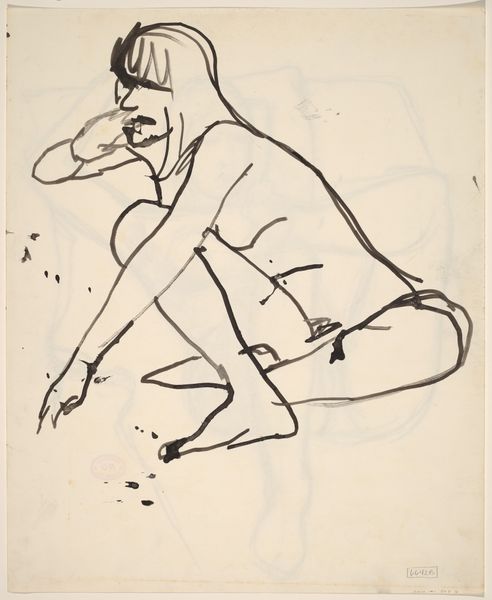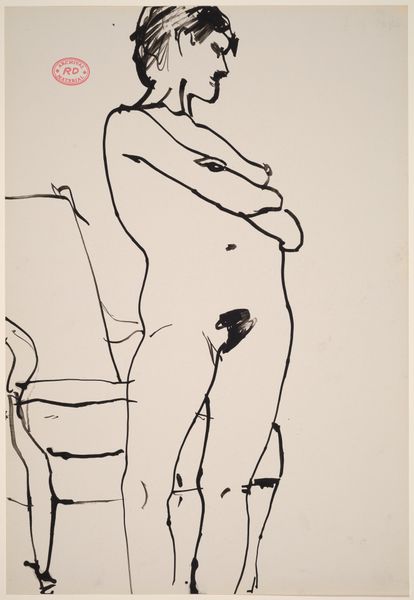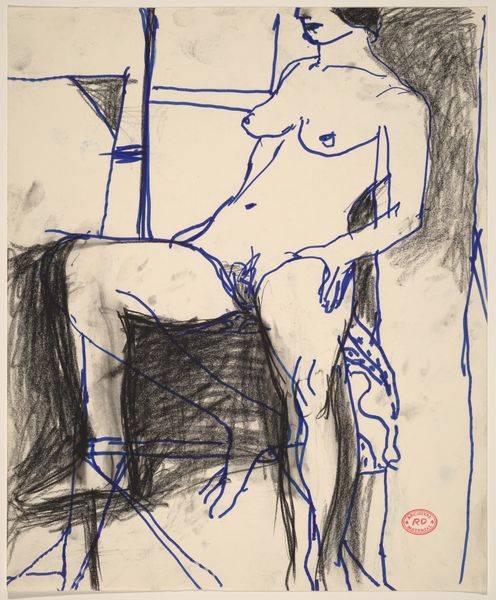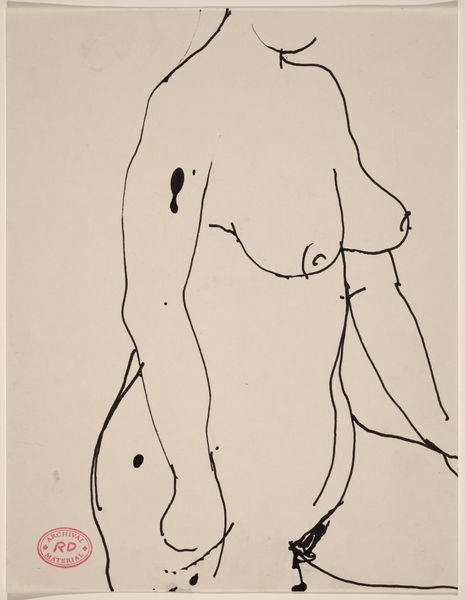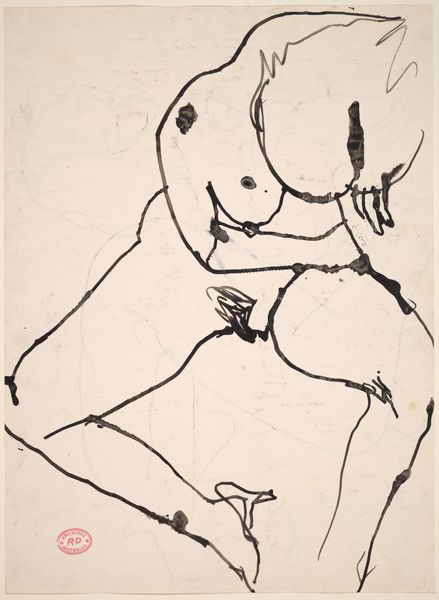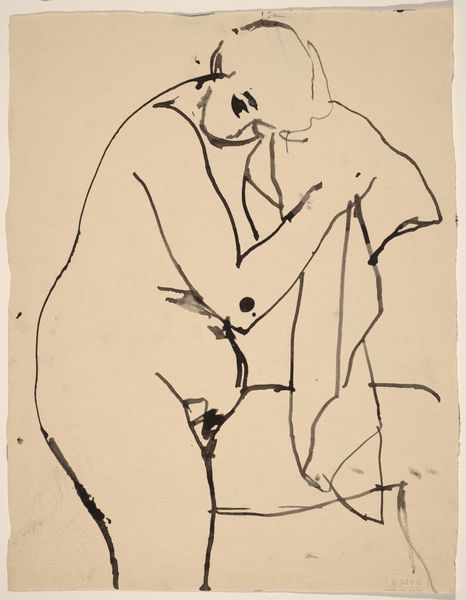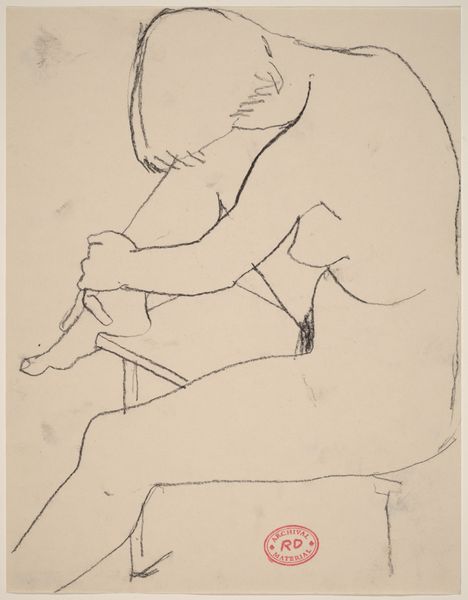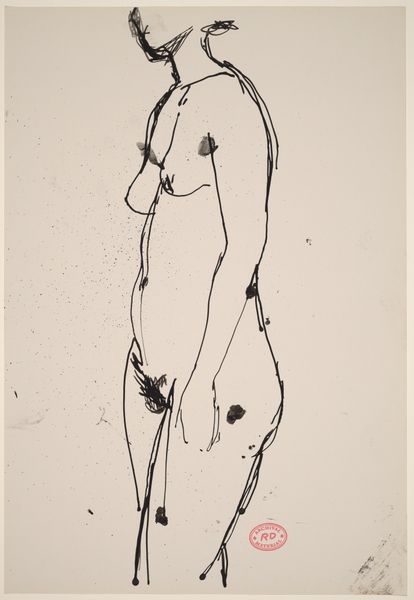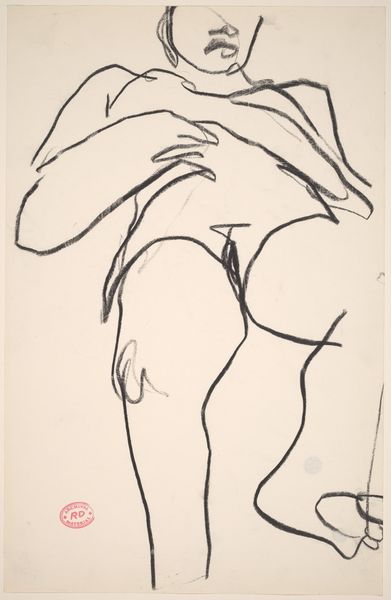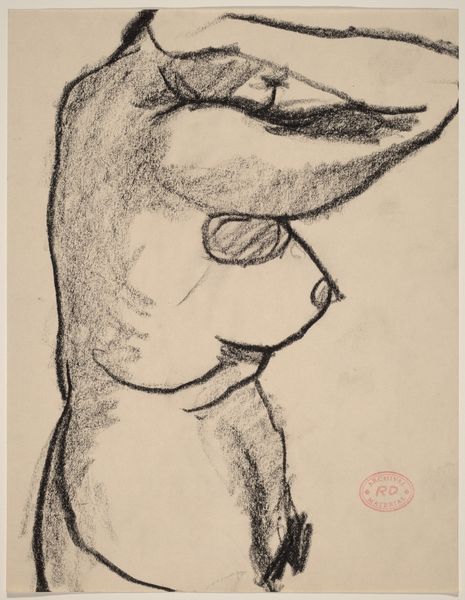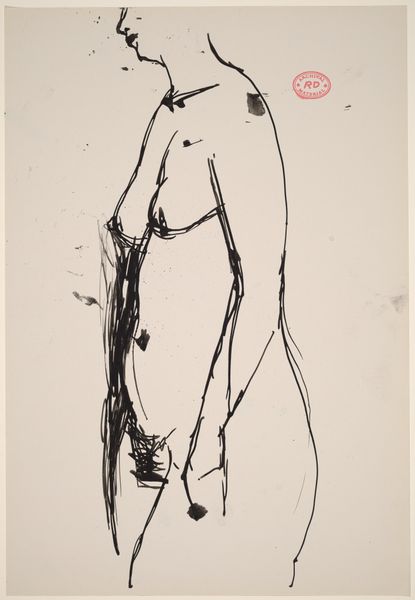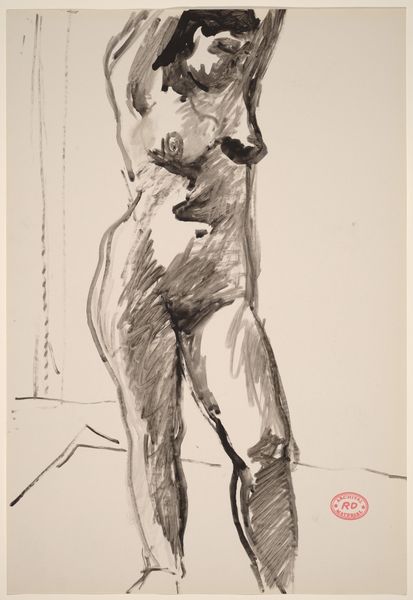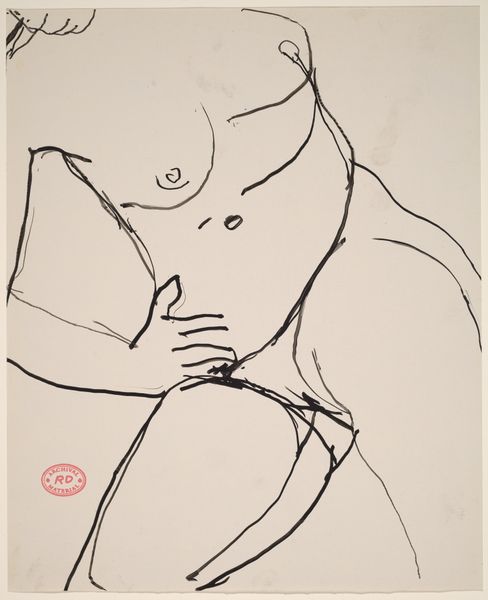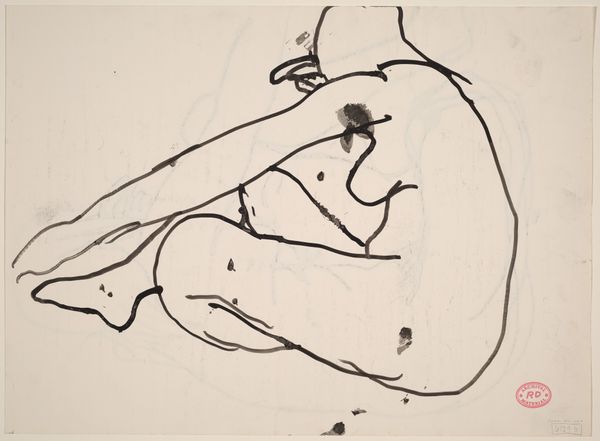![Untitled [standing nude with a mirror and resting her left foot on a support] [recto] by Richard Diebenkorn](/_next/image?url=https%3A%2F%2Fd2w8kbdekdi1gv.cloudfront.net%2FeyJidWNrZXQiOiAiYXJ0ZXJhLWltYWdlcy1idWNrZXQiLCAia2V5IjogImFydHdvcmtzLzVhMDI2ZTAzLWE1NzMtNGQwNC1iNzZkLTYwNGJiZDA3NjQ0MC81YTAyNmUwMy1hNTczLTRkMDQtYjc2ZC02MDRiYmQwNzY0NDBfZnVsbC5qcGciLCAiZWRpdHMiOiB7InJlc2l6ZSI6IHsid2lkdGgiOiAxOTIwLCAiaGVpZ2h0IjogMTkyMCwgImZpdCI6ICJpbnNpZGUifX19&w=3840&q=75)
Untitled [standing nude with a mirror and resting her left foot on a support] [recto] 1955 - 1967
0:00
0:00
drawing, ink, pen
#
portrait
#
drawing
#
ink drawing
#
pen sketch
#
figuration
#
bay-area-figurative-movement
#
ink
#
pen
#
nude
Dimensions: overall: 43.2 x 31.8 cm (17 x 12 1/2 in.)
Copyright: National Gallery of Art: CC0 1.0
Curator: Immediately, I am struck by the sheer sparseness. A few bold lines, and suddenly, there’s a figure, a world. I'm curious about what choices lead to this feeling of immediacy. Editor: It's intriguing, isn't it? This is an ink and pen drawing by Richard Diebenkorn, created sometime between 1955 and 1967. The title, "Untitled [standing nude with a mirror and resting her left foot on a support] [recto]," gives us some clues, yet retains an alluring sense of the unsaid. Curator: Unsaid, indeed. It's the posture. The slight tilt of the head, the almost defensive way she holds her arm... It reads as incredibly vulnerable. I can't help but wonder about her relationship with the reflection she sees. Does she approve? Does the artist? Editor: I read her positioning more within the frame of modern art's history. Think about how the female nude has been both idealized and exploited. Here, I see a resistance to either extreme, Diebenkorn neither shies away from nor sensationalizes her form. It’s matter-of-fact, almost clinical in its detachment. Curator: Hmm, clinical isn't the word I'd use, although I understand why you might say so. Perhaps, "intimate" is a better descriptor. Diebenkorn strips everything away to get to the bare essence of being. Even with the heavy linework, you almost feel like you could reach out and touch her. Like a secret glimpse of raw existence. Editor: I appreciate your point about intimacy, especially regarding Diebenkorn's choices with the mirror's implied presence. Instead of revealing more, the mirror seems to conceal, challenging conventional representations of women in art. Who gets to see what and why? It raises many fascinating questions of representation and spectatorship. Curator: Agreed. It’s not a passive image; it invites you to really look and, perhaps more importantly, to truly see. So thank you, Diebenkorn. It’s moments like this that make wandering through galleries so profound. Editor: It really does make us confront how we ourselves participate in seeing, in reflecting, and in understanding both ourselves and each other. What a perfect end note.
Comments
No comments
Be the first to comment and join the conversation on the ultimate creative platform.
